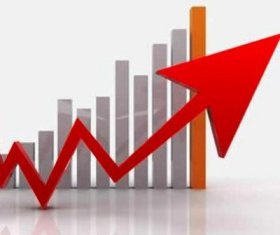The consistent rise in the country’s inflation rate has heightened expectancy among economists that government will miss its inflation target for the year.
The country’s consumer prices surged to 19% year-on-year in January 2016, compared to a 17.7% recorded in December 2015, indicating 1.3 percentage points increase -- the highest rate since January 2013. This was boosted mainly by prices of fuel, food and utilities after increases in tariffs for electricity and water in December to ensure break-even figures for utility production.
However, some economists have expressed misgivings about the Bank of Ghana’s (BoG) approach to taming inflation so as to hit the end of year target of 10.1 percent.
Dr. Ebo Turkson, Economist and Lecturer at the University of Ghana, in an interview with the B&FT opined that inflation can be reduced if the central bank discontinues tightening the monetary policy and rather pays attention to the economy’s supply side.
“Tightening the policy rate works better in an environment where inflation normally comes from the demand side, and therefore when you are experiencing increases in inflationary pressures you use the policy rate to tame that pressure.
“In the past it worked for us, but now the situation we have in our economy is that inflation is coming from the supply side; and so we need to take a second look at the inflation target because the current measures are not working.
“But we wonder how a change in the policy rate will go to tame inflationary pressures when electricity, water and fuel prices go up and therefore producers have to increase the prices of their products because cost of production has increased”.
“So because of this, some of us are not too confident in the inflation targets we have at the moment,” he added.
His view is underscored by CEO of the Association of Chattered Economists, Daniel Anim-Prempeh, who opines that the current inflation trend in the country shows the rise is driven by cost, which has been transferred to the prices of goods and services as a result of the high cost of production -- adding steps must be taken to reduce the high cost of production in the country, so as to arrest the consistent rise in inflation.
“The inflation confronting the nation is cost-driven. It comes as a result of factor prices used in the production of goods and services, rather than the demand aspect which Bank of Ghana keeps focusing on.
“Because once the utility prices go up it automatically affects everything, and of course affects the cost of production. So once the inputs used in production keep on increasing, it will be very difficult for us to tame the inflation rate.
“And if this continues we will gradually lose the battle against inflation, because the central bank is not focusing on the major cause of inflation. So looking at the trend, one can confidently predict that the inflation target will be missed,” he said.
The current state of the economy has lowered confidence in a lot of industry players, as the Association of Ghana Industries’ (AGI) barometer on business confidence confirmed earlier in the month.
Business News of Friday, 19 February 2016
Source: B&FT Online
Inflation target will be missed - Economists
 File photo
File photo












